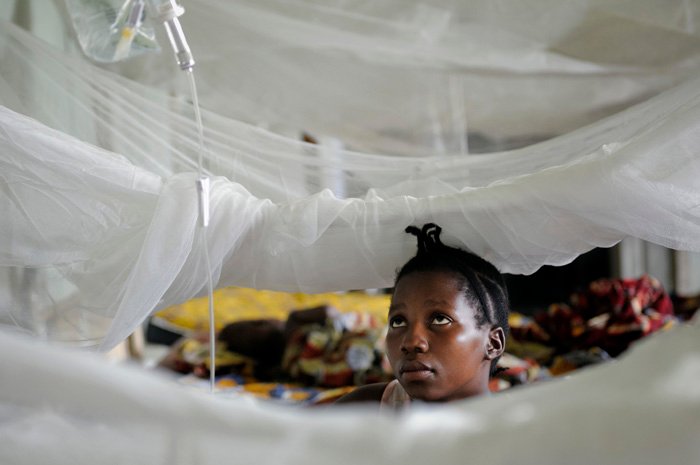Funding for health - 10 stories that mattered in access to medicines in 2011

Dec 28, 2011
“There are funding gaps across global health that could be plugged with money from a financial transaction tax. It’s time to invest in real lives – real futures.”
- Sharonann LYNCH, HIV/AIDS Policy Advisor, MSF Access Campaign
Progress in the fight against HIV, TB and malaria under threat as health funding falters
Donor support to fight diseases that hit the poor hardest has been waning for a while, but the announcement from the Global Fund to Fight AIDS TB and Malaria in November that it was cancelling its annual funding round because donors had not paid up was nonetheless a shock.
Countries will now have to wait until 2014 – at the earliest – before they can receive new funds to put more people on treatment for HIV or drug-resistant TB, or roll-out diagnostic tests for malaria, for example. The Fund has put a stop-gap solution in place that can prevent treatment interruptions in the meantime – but it’s one that leaves countries hanging on the thinnest of lifelines.
A decade of progress fighting these three big killer diseases is now at risk. This retreat also comes at a time when there is a window of opportunity, capitalising on recent advances, to save lives and ensure a healthy future for communities in developing countries. With HIV for example, new evidence shows treatment itself could turn around the AIDS epidemic by slowing the spread of the virus; and new advances show that safer and more effective treatment for severe forms of malaria could save hundreds of thousands of children’s lives each year.
Given this scientific promise, now is not the time to scale down ambitions and accept that access to treatment will be rationed. Donors must now urgently step up and replenish the Global Fund so that its life-saving work can continue without interruption.
And while regular funding commitments must continue to be honoured, there is also an urgent need for new and sustainable streams of revenue that can make up the gap. Even if donor countries made good on promises, it would still take more to meet the health needs in developing countries, and support medical innovation.
One proposal is a small tax on financial transactions, such as the one being proposed in the European Union – dedicating a portion to global health could have a crucial impact on the health and lives of people in developing countries. The impact would be even greater if such a tax were supported by the G20 group of nations.
- Sharonann LYNCH, HIV/AIDS Policy Advisor, MSF Access Campaign
Progress in the fight against HIV, TB and malaria under threat as health funding falters
Donor support to fight diseases that hit the poor hardest has been waning for a while, but the announcement from the Global Fund to Fight AIDS TB and Malaria in November that it was cancelling its annual funding round because donors had not paid up was nonetheless a shock.
Countries will now have to wait until 2014 – at the earliest – before they can receive new funds to put more people on treatment for HIV or drug-resistant TB, or roll-out diagnostic tests for malaria, for example. The Fund has put a stop-gap solution in place that can prevent treatment interruptions in the meantime – but it’s one that leaves countries hanging on the thinnest of lifelines.
A decade of progress fighting these three big killer diseases is now at risk. This retreat also comes at a time when there is a window of opportunity, capitalising on recent advances, to save lives and ensure a healthy future for communities in developing countries. With HIV for example, new evidence shows treatment itself could turn around the AIDS epidemic by slowing the spread of the virus; and new advances show that safer and more effective treatment for severe forms of malaria could save hundreds of thousands of children’s lives each year.
Given this scientific promise, now is not the time to scale down ambitions and accept that access to treatment will be rationed. Donors must now urgently step up and replenish the Global Fund so that its life-saving work can continue without interruption.
And while regular funding commitments must continue to be honoured, there is also an urgent need for new and sustainable streams of revenue that can make up the gap. Even if donor countries made good on promises, it would still take more to meet the health needs in developing countries, and support medical innovation.
One proposal is a small tax on financial transactions, such as the one being proposed in the European Union – dedicating a portion to global health could have a crucial impact on the health and lives of people in developing countries. The impact would be even greater if such a tax were supported by the G20 group of nations.





Leave a Comment